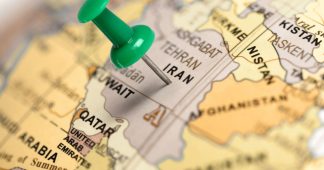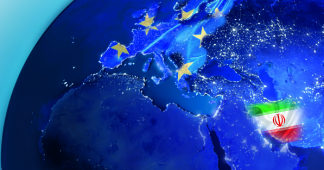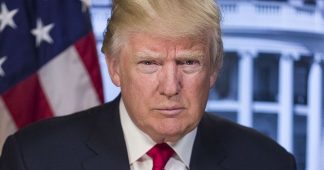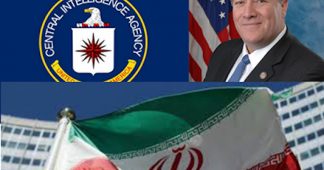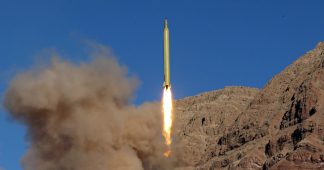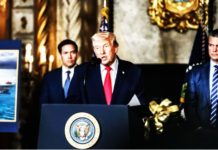By Giulietto Chiesa
In the big mess of the current American foreign policy, which is an effect of the internal political mess, Iran represents the biggest issue.
It is unclear whether Donald Trump is acting in this way in order to cancel everything made by his predecessor or because he is controlled by the Israel Lobby (which dominates both the Democratic Party and the Republican Party). At any rate, he seems to operate in order to undermine at any cost the JCPOA agreement (Joint Comprehensive Plan of Action) signed by Iran and its western counterparties and indeed led by Barack Obama.
In order to understand what is going on, it may be useful to remember that the goal of the Joint Plan of Action – signed on July 14th, 2015 – was almost the complete annihilation (98%) of Teheran’s low-enriched uranium stock and the reduction of two-thirds of the Gas Centrifuge Enrichment Plants during the following thirteen years, besides the commitment by Iran to give up building a new plant for the production of heavy water. The International Atomic Energy Agency (IAEA) has been in charge of monitoring the progress of the agreement and, in order to do so, it has nearly unlimited access to Iranian nuclear facilities. These few facts are enough to understand that Rohani’s Iran has accepted a virtually unconditional surrender, canceling any even remote possibility to build an atomic bomb in the next fifteen-year period.
In order to push the agreement with Teheran through the suspicious Congress, Barack Obama agreed on a quarterly monitoring. According to that, the US President must notify Congress every 90 days of Iran’s compliance with the Joint Comprehensive Plan of Action (bear in mind that the Senate had praised unanimously the furious statement of Netanyahu, who had come to Washington to communicate the total Israel’s disapproval towards the agreement). Now, it’s Donald Trump’s turn to make this review.
The first two reports passed without any objection, but with difficulty. According to the New York Times’ account of the second report – that occurred a few days ago – the presidential team (which in turn had received the report from IAEA, according to which Teheran was fulfilling the agreement) had a hard time convincing Trump not to raise further difficulties. However, the third review will arrive in three months and everything suggests that Donald Trump will cling to any pretext in order to blame Teheran and undermine the agreement. Moreover, the United States, following a President’s decision, have already augmented the sanctions against Iran (because of the Syrian war), without waiting for the JCPOA review. Trump took the opportunity of the G-20 meeting to dissuade other countries from getting back to “business as usual” with Iran.
Rohani has just won the elections for the second time, notwithstanding the opposition’s protests – thus demonstrating that he had acted according to the will of the people – and he is now facing the challenge of “keeping calm”. Actually, after agreeing on everything, he has remained with nothing in his hands. Iranian Minister for Foreign Affairs, Mohammad Javad Zarif, explicitly said: “Iran’s patience has limits”. If this line is crossed, the first to rejoice would be Tel Aviv, followed closely by the bipartisan majority of the Senate. And the consequences would be unforeseeable. Also because the “five plus one” countries who signed the agreement are the members of the United Nations Security Council, plus Germany, and the exit of the United States from the agreement would surely cause enormous repercussions on the whole North Atlantic Alliance. Not to mention that Turkey, a member of the Alliance, is moving constantly towards the new “Silk Road” of Xi Jinping.
As it is clear that Russia and China sympathize with Teheran – and indeed have both been among the guarantors of the agreement – for the western community a possibility remains open, that is Europe might consider valid the JCPOA agreement also in case of a unilateral exit of the United States from the agreement. That would cause further tension both with Washington (that would lose many potential economic deals) and with Israel, which keeps considering the dismissing of Hezbollah and Bashar el Assad as a primary goal (and damaging Iran by doing so), regardless the state of implementation of the nuclear agreement.
In three months – in October – Donald Trump will have to make up a way to refuse the third certification of Iranian compliance (assuming that Teheran won’t lose patience). For example by instigating a series of accusations against Iran. But, in order to set up this new show, Trump needs the media, which are not his friends. The media will have to decide whether it is more important to support Israel, which controls them – but is allied with Donald Trump on this subject – or if it will be more urgent to criticize Trump.
